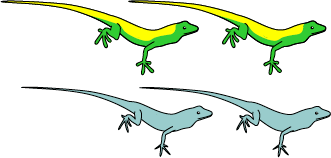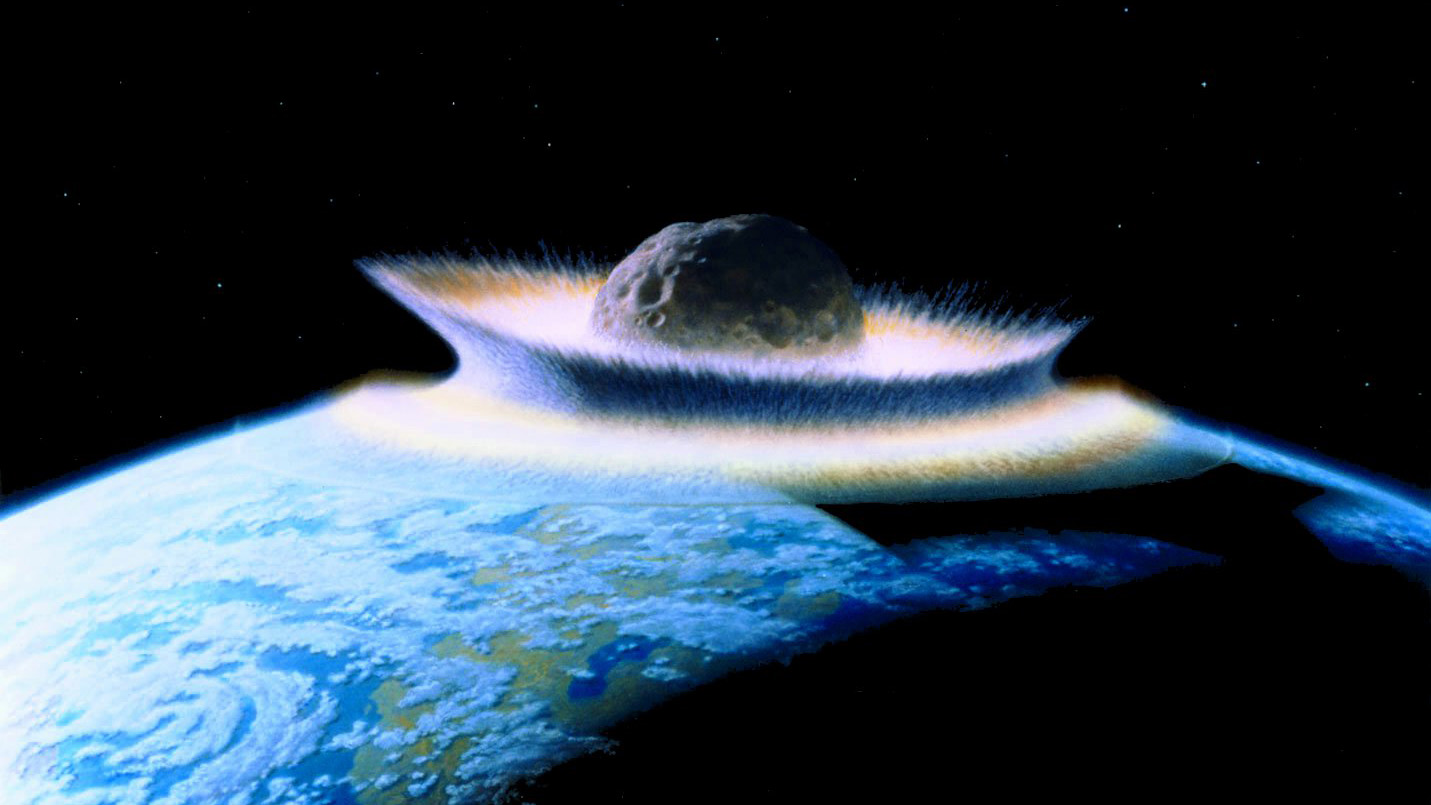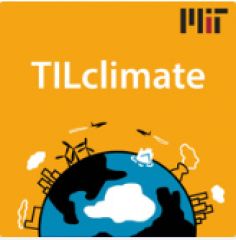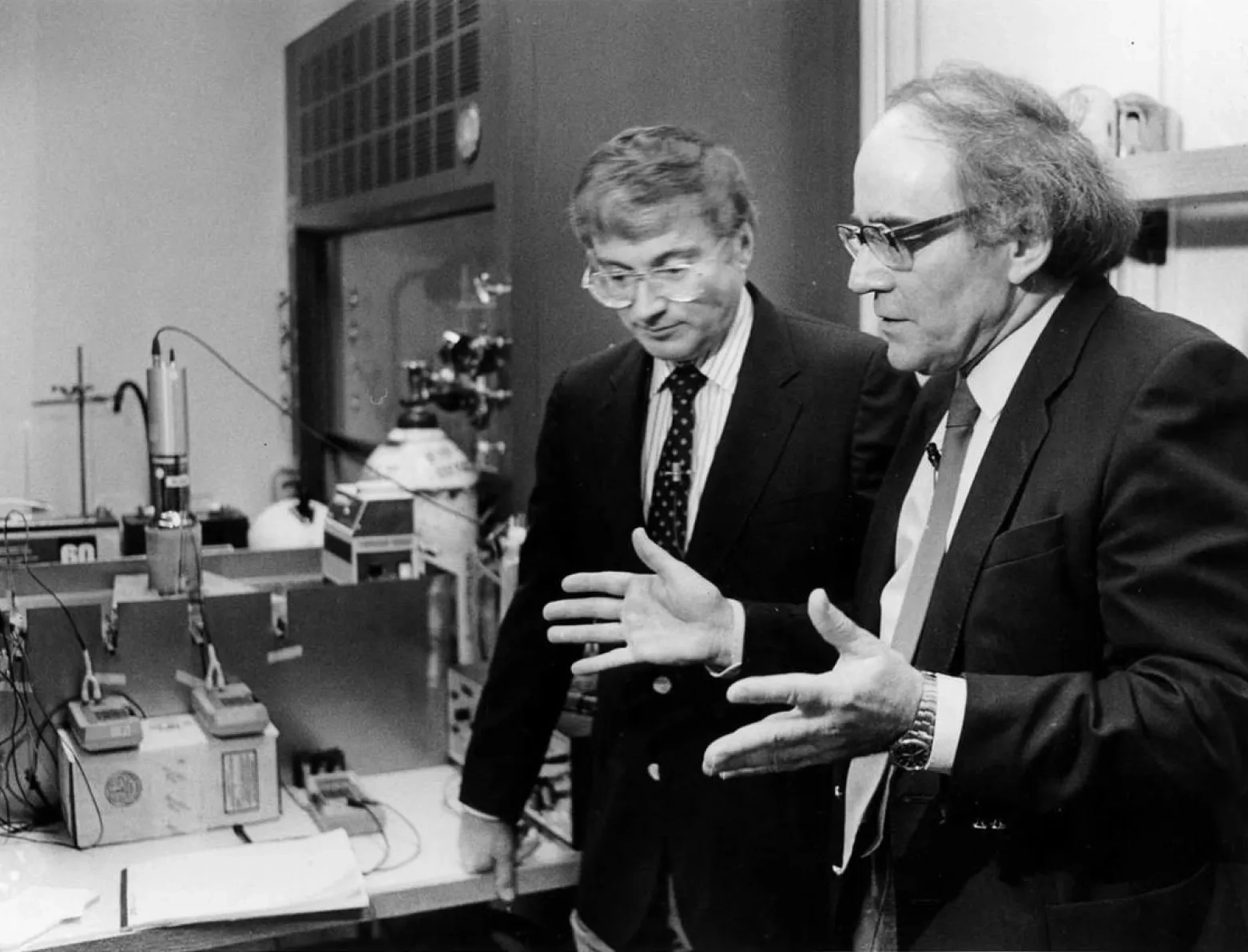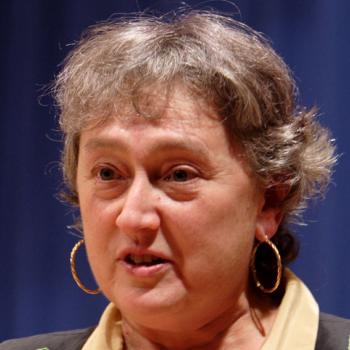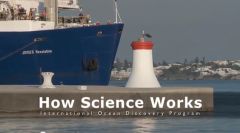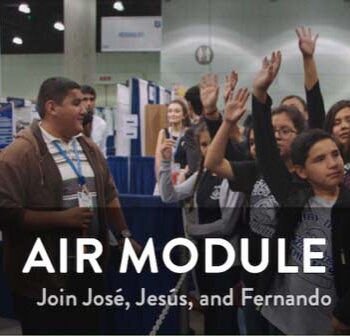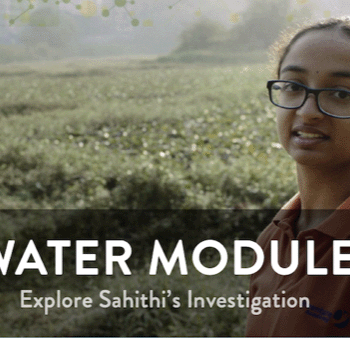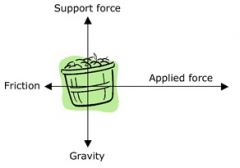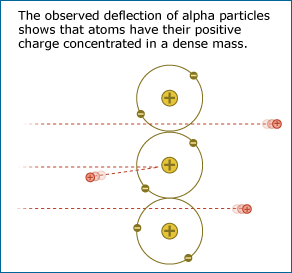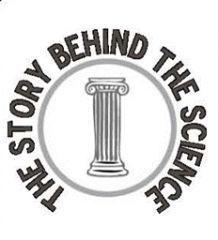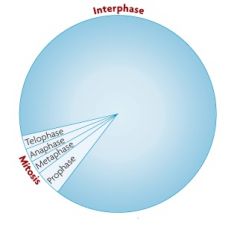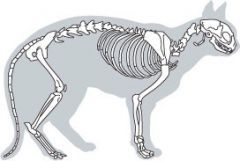Found 27 resources for the concept:
The process of science involves observation, exploration, testing, communication, and application.
Age dating star clusters
Grade Level(s):
- 9-12
Source:
- Whitfield, Lisé
Resource type:
- lab activity
Discipline:
- Space science
Time: ~ one hour
Overview
Students explore how classification and graphing are used by astronomers to determine the age of star clusters. They will measure the color and brightness of stars, as proxies for temperature and luminosity.
Amazon fly
Grade Level(s):
- 6-8
- 9-12
- College
Source:
- UC Museum of Paleontology
Resource type:
- lab activity
Discipline:
- Life Science
Time: 10-15 minutes
Overview
This short activity quickly engages the participants in the process of developing testable hypotheses. Students come up with multiple hypotheses to explain a set of observations and figure out how to test these hypotheses.
Anolis Lizards
Grade Level(s):
- 9-12
Source:
- Collins, Jennifer
Resource type:
- lab activity
Discipline:
- Life Science
Time: Two class periods
Overview
Students "travel" to the Greater Antilles to figure out how the Anolis lizards might have evolved there. Students make observations, ask questions, share data, form hypotheses, generate expectations, get more data, interpret them, and test their ideas.
Asteroids and dinosaurs: Unexpected twists and an unfinished story
Grade Level(s):
- 9-12
- College
Source:
- UC Museum of Paleontology
Resource type:
- Science Story
Discipline:
- Earth science
- Life Science
Time: 2 class periods
Overview
This story uses the Science Flowchart to map Walter Alvarez's scientific journey as he investigates an intriguing hypothesis about the extinction of the non-Avian dinosaurs. Get tips for using science stories in class.
Benjamin Franklin: STEM Activity Toolkit
Grade Level(s):
- 3-5
- 6-8
- 9-12
Source:
- PBS and WETA
Resource type:
- classroom activity
Discipline:
- Earth science
- Physical Sciences
Time: 1-6 hours
Overview
Ken Burns’s four-hour documentary, Benjamin Franklin, explores the revolutionary life of one of the 18th century’s most consequential figures. This STEM Activity Toolkit frames the context of the film series, and provides guidance for viewers to engage in discussions and activities around science, technology, engineering, and math.
Climate Models and Uncertainty
Grade Level(s):
- 9-12
Source:
- MIT Climate Portal
Resource type:
- classroom activity
Discipline:
- Earth science
Time: up to 2 hours
Overview
Earth's climate system is enormously complex, and scientists develop climate models to understand how climate change will play out in different parts of the world. Students play a climate resilience game, and then explore the Intergovernmental Panel on Climate Change’s 5th Assessment Report to learn more about how climate scientists handle uncertainty in models.
Cold fusion: A case study for scientific behavior
Source:
- UC Museum of Paleontology
Resource type:
- Science Story
Time: 2 class periods
Overview
This Science Story uses the "discovery" of cold fusion in the late 1980s to illustrate the nature of scientific misconduct and the importance of scientific behavior and the scrutiny of the scientific community in the process of science. Get tips for using science stories in class.
Designing your very own science experiment
Grade Level(s):
- 9-12
Source:
- Stefanski, Mark
Resource type:
- lab activity
Discipline:
- Life Science
Time: 2-4 class periods
Overview
Students design and carry out an experiment using pill bugs (isopods). Other organisms could be used in place of the pill bugs. Students reflect on the process used by charting their pathway on the Science Flowchart.
Endosymbiosis: Cells within cells
Grade Level(s):
- 9-12
- College
Source:
- UC Museum of Paleontology
Resource type:
- Science Story
Discipline:
- Life Science
Time: one period
Overview
This Science Story on endosymbiosis explores the career of microbiologist Lynn Margulis and how an unlikely idea overcame strong resistance within the scientific community and finally came to be an accepted part of evolutionary theory. Get tips for using science stories in class.
Exploring bouncing balls
Grade Level(s):
- 6-8
- 9-12
Source:
- UC Museum of Paleontology
Resource type:
- lab activity
Discipline:
- Physical Sciences
Time: one class period
Overview
Students explore the physical properties of a variety of balls and how they bounce. Students then reflect on the process they used by charting their pathway on the Understanding Science Flowchart.
How science works
Grade Level(s):
- 6-8
- 9-12
- College
Source:
- California Academy of Sciences
Resource type:
- Science Story
- video
Discipline:
- Life Science
Time: 10 minutes
Overview
This Science in Action video uses the Understanding Science Flowchart to follow arachnologist Charles Griswold and colleagues as they describe the process involved in an exciting new spider discovery.
How science works
Grade Level(s):
- 6-8
- 9-12
Source:
- OceanLeadership
Resource type:
- Science Story
- video
Discipline:
- Earth science
Time: 10 minutes
Overview
This video uses the Understanding Science flowchart to describe how a team of scientists investigates climate change throughout Earth's history with ocean sediment cores.
Introducing the Understanding Science flowchart
Grade Level(s):
- 9-12
- College
Source:
- UC Museum of Paleontology
Resource type:
- classroom activity
Discipline:
- Earth science
Time: 90 minutes
Overview
Students participate in a quick activity and discuss whether they were doing science. They then read a story about Walter Alvarez, discuss the process of science, and trace his scientific journey using the Science Flowchart.
Inventing tomorrow: Air Module
Grade Level(s):
- 6-8
- 9-12
Source:
- WGBH
Resource type:
- classroom activity
Discipline:
- Earth science
Time: 10-12 class periods
Overview
This module (on the right) uses a film about students José, Jesús, and Fernando, who investigate smog in their town in Mexico, as a jumping off point for students to expand their understanding of air pollution, global warming, and the process of science.
Inventing Tomorrow: Water Module
Grade Level(s):
- 6-8
- 9-12
Source:
- WGBH
Resource type:
- classroom activity
Discipline:
- Earth science
Time: 10-12 class periods
Overview
This module uses a film about student Sahithi Pingali, who investigates water quality in her hometown in Bangalore, as a jumping off point for students to expand their understanding of eutrophication and the process of science.
Investigating a Deep Sea Mystery
Grade Level(s):
- 9-12
Source:
- ETOL
Resource type:
- lab activity
Discipline:
- Life Science
Time: 4-5 class periods
Overview
In this lab activity, students examine authentic morphological and phylogenetic data of three fish families and then pose and test alternative hypotheses about the fishes' classification.
Luminous
Grade Level(s):
- 9-12
- College
Source:
- Sam Smartt
Resource type:
- classroom activity
- Science Story
- video
Discipline:
- Space science
Time: 2-8 hours
Overview
The film LUMINOUS (now freely available through many libraries and the Kanopy platform) tells the story of astronomer Larry Molnar as he investigates a distant, double-star system, about which he makes a daring and explosive prediction. Interviews with Dr. Molnar’s diverse set of colleagues, collaborators, and skeptics highlight science as a community and intensely human endeavor, debunking the myth of the lone scientist conducting dispassionate research. The Luminous Science Education Toolkit provides classroom activities to support students' interpretation of the film.
Mystery tubes
Grade Level(s):
- 6-8
- 9-12
- College
Source:
- ENSI
Resource type:
- classroom activity
Time: One class period
Overview
Students are asked to determine what the interior construction of the mystery tube looks like. Working in groups, students pose explanations for what they are observing and test their ideas.
Newton’s 2nd law: Inquiry approach
Grade Level(s):
- 9-12
Source:
- Tung, Cecilia
Resource type:
- classroom activity
Discipline:
- Physical Sciences
Time: One to two class periods
Overview
Students act as colleagues of Isaac Newton. Students focus on how to design a procedure to test Newton's hypothesis and then communicate that idea to others. The emphasis is on the process rather than the actual results.
Number patterns
Grade Level(s):
- 6-8
- 9-12
- College
Source:
- UC Museum of Paleontology
Resource type:
- classroom activity
Time: 15-20 minutes
Overview
Students try to discover the relationship among six numbers. The objective of this activity is to engage students in a problem-solving situation in which they practice aspects of the process of science.
Poking around
Grade Level(s):
- 9-12
Source:
- Stefanski, Mark
Resource type:
- classroom activity
Time: One to two class periods
Overview
Students are introduced to the process of scientific inquiry as they develop an approach to determine the shape and size of an unseen object.
Rutherford’s enlarged: A content embedded NOS activity
Grade Level(s):
- 9-12
Source:
- Abd-El-Khalick, Fouad
Resource type:
- lab activity
Discipline:
- Physical Sciences
Time: One class period
Overview
Students reason about a model of Ernst Rutherford's famous experiment supporting the idea of the atomic nucleus. They differentiate between observation and inference and see the role of creativity in the process of science.
The checks lab
Grade Level(s):
- 9-12
Source:
- ENSI
Resource type:
- classroom activity
Time: One class period
Overview
Students construct plausible scenarios to explain a series of canceled bank checks. They revise their original hypotheses with new evidence and learn how human values and biases influence observation and interpretation.
The great fossil find
Grade Level(s):
- 6-8
- 9-12
- College
Source:
- ENSI
Resource type:
- classroom activity
Discipline:
- Life Science
Time: one class period
Overview
Students are taken on an imaginary fossil hunt and form hypotheses about the identity of the creature they discover. Students revise their hypotheses as new evidence is found.
The story behind the science
Grade Level(s):
- 9-12
- College
Source:
- Iowa State University
Resource type:
- article
Time: Variable
Overview
Thirty stories spanning five disciplines help students explore key science concepts through the eyes of the scientists who were involved, while emphasizing the nature and process of science.
Time for mitosis
Grade Level(s):
- 9-12
Source:
- Lederman, Norman and Judith
Resource type:
- article
Discipline:
- Life Science
Time: One to two class periods
Overview
Drs. Lederman compare two methods of teaching about mitosis, emphasizing how to enhance a lesson by incorporating the nature of science.
Xenosmilus
Grade Level(s):
- 3-5
- 6-8
- 9-12
Source:
- UC Museum of Paleontology
Resource type:
- classroom activity
Discipline:
- Life Science
Time: One class period
Overview
In this lesson, students play the roles of paleontologists on a dig. They "unearth" a few fossils at a time and attempt to reconstruct the animal the fossils represent.



